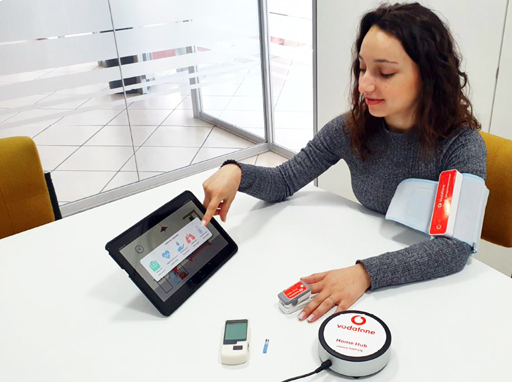How a pandemic focuses the mind
- September 11, 2020
- Steve Rogerson
IMC executive editor Steve Rogerson reflects on this week’s IMC IoT in Healthcare online conference.
While for years the healthcare industry has been moving towards remote care, that drift has accelerated beyond what anyone could have imagined in just a few short months. There is nothing like a global pandemic to focus the mind.
Many of the changes so far this year would have happened anyway, probably, but maybe not for years as the healthcare industry, for good reasons of safety first, tends to move slowly. That has now all changed and, while caution hasn’t quite been thrown to the wind, it is certainly fluttering a little as the world adapts to Covid-19.
This moving landscape was reflected this week at IoT in Healthcare, the first of a series of online conferences organised under the IoT Days banner by the IoT M2M Council (IMC).
“It is astounding how fast innovation is happening here and now,” said Romil Bahl, president and CEO of Kore, in his opening keynote. “We are tempted to say that the past few months have seen forced innovation.”
Some of the figures show this. Take Vodafone for example, in the 39 countries covered by its IoT platform, there are 15 million connected medical devices.

Vodafone’s Hospital@Home lets patients be remotely monitored by health professionals
“The growth in healthcare is expanding significantly,” said Kristie Swanson, US sales healthcare vertical lead at Vodafone. “In an accelerated fashion in recent months, healthcare is going through a much needed digital transformation. It is empowering patients, allowing more of us to take responsibility for our own health and taking strain off healthcare resources.”
Her colleague Jon Lee-Davey added: “We can allow patients to recuperate from Covid-19 at home. This reduces the risk of infection. Healthcare can benefit from digitalisation and the IoT is helping with this digitalisation.”
While the connected health revolution has been waiting for years on government regulations and other factors to take off in a big way, Bahl said the past few months had shown it really was about consumer behaviour. Telemedicine is now accepted.
Alistair Elliott, CTO of the Pod Group, said this was because Covid-19 had put a heavy strain on doctors, nurses and healthcare resources on top of existing issues such as the ageing population. But he said technology was finding a better way of doing this such as the ability to diagnose and treat people remotely. Machine learning, he said, could be more efficient than doctors at diagnosing patients.
Now, we all know the technology behind all these changes comes under the banner of the IoT, but we tend not to shout about that too much because if you said “internet of things” to the average person on the street they would not really know what you were talking about. They may have heard the phrase, but it is all a bit techy.
This is why Bahl said in the healthcare industry companies did not talk about the IoT with their customers but about what this technology was enabling, about wearable body monitors, remote consultations and so on. Basically about being treated and monitored at home rather than in hospital.
“Patients don’t want to be tied up in hospital,” said Elliott. “They can have a better quality of life if they can recover and be treated at home.”
The problem, Bahl said, was that while more than half of health companies were transforming their connected business models, most were not prepared for this journey. They want to do it but they are just not ready.
As well as the obvious cost difficulties when it comes to making this change, the big barrier is worries about privacy. This technology is dealing with people’s most intimate data; it does not get more personal than the facts and figures of how your body is behaving.
“The biggest issues will be around privacy,” said Bahl.
Elliott added: “The potential for a breach of the data does have some high consequences.”
As to the future, it is important that the industry not only learns lessons for dealing with more spikes in Covid-19 but for future pandemics, and they will come.
“Covid-19 is not going away,” said Syed “Z” Hosain, CTO of Aeris Communications, “and we will see more pandemics of this type.”
The important thing he said was to learn the lesson from Covid-19 and apply them to future outbreaks.
“The earlier we can get to the point where we can deal with the pandemic, the better it will be,” he said. “Rapid early detection is important.”
For this he said governments needed to spend money on detection methods to help isolate outbreaks region by region rather than in whole countries.
I think we are all bored now with Covid-19 but at least it is our industry’s technology that is pointing the way forward for not only getting through this but for being better prepared for the next dark cloud. We don’t want another 2020.




